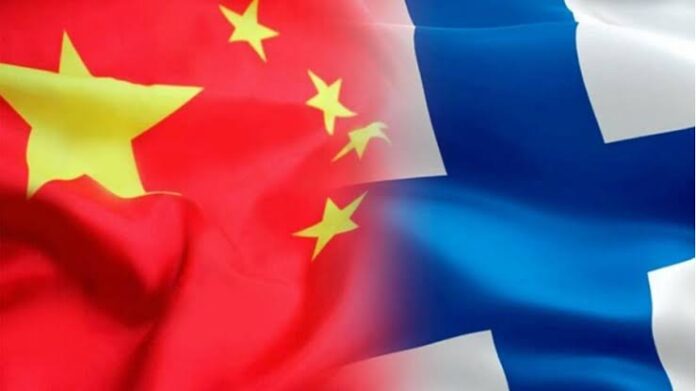In the aftermath of the Ukraine war, once-thriving Finland trade and travel links with China are undergoing significant shifts. The European country’s alignment with sanctions against Russia has severed crucial transit routes, disrupting its role as a strategic link between China and Europe. This geopolitical realignment, compounded by visa policy disparities, has caused a substantial reduction in trade and travel between Finland and China.
The Disruption of Flight Routes and Tourism
Before the war, Finland enjoyed a unique advantage among European nations. Its flights could traverse Russian airspace, making trips to China significantly shorter and more convenient. This geographical benefit positioned Finland as a preferred hub for business and tourism, with direct flights from Helsinki to multiple Chinese cities facilitating brisk travel. However, with the onset of the Russia-Ukraine conflict in 2022, Finland’s participation in the European Union’s sanctions against Russia led to the closure of Russian airspace for its flights.
The redirection of flight paths over Turkey has extended travel times by approximately three hours. This change has adversely affected Finnair, Finland’s flag carrier, reducing the number of direct flights to China. Routes such as Helsinki to Zhengzhou, which were established as recently as 2020, have seen significant cuts, while the older Helsinki-Shanghai route has experienced a 9% reduction in scheduled flights since 2019. Moreover, six other direct routes from Helsinki to Chinese cities have been completely halted, reflecting a broader decline in demand.
The geographical advantage of Helsinki, which previously attracted large volumes of travelers from northern Europe, has been significantly eroded. The resultant increase in travel time and airfare has led to a steep drop in demand for Finnair’s China routes. This situation is further exacerbated by Finland’s exclusion from the list of countries whose nationals are eligible for 15-day visa-free stays in China. While 11 European countries enjoy this privilege, boosting their tourism influx from China, Finland has seen a sharp decline in Chinese tourist arrivals, plummeting from over 40,000 per month in late 2019 to about 12,000 monthly in the past year.
India’s Strategic Triumph in Silver Trade Dominance War with China
Impact on Finland Trade due to Railway Connectivity
The severance of railway connections has compounded the challenges faced by Finland. Previously, trains crossing the 1,340 km Finland-Russia border facilitated efficient cargo transport from China to Finland. However, Finland’s cessation of train services to and from Russia has effectively cut off this vital trade link. Railway cargo transport had been growing rapidly before the Ukraine conflict, but this growth has now been stymied.
You may like to read a book on Sanctions
Overall China’s Finland trade has also suffered. Chinese customs data reveal a decline from USD 3.3 billion in trade during the first five months of 2023 to USD 2.6 billion in the same period in 2024. This downturn reflects Finland’s diminished connectivity and increased logistical challenges, affecting its trade volume with China, which stands as Finland’s fifth-largest export market.
Estonia’s Bold Moves: Cuts Education Ties with Russia, Considers Armed Support to Ukraine
The geopolitical fallout has also impacted infrastructural projects. Finland and Estonia have shelved plans for an 80 km railway tunnel linking Helsinki to Tallinn. The project, which had attracted Chinese interest as part of the Belt and Road Initiative, was abandoned due to concerns over high construction costs and low expected returns on investment. Despite initial interest, Finnish officials were hesitant about the project’s viability, leading to its suspension.
Prospects and Future Considerations
Despite these challenges, there are still areas of Chinese engagement in Finland. Notably, the sale of affordable electric vehicles (EVs) from China has gained traction. Additionally, Chinese firms have expressed interest in investing in Finland-based lithium EV battery production plants. One such project, backed by China-based CNGR Advanced Metals, is planned for the coast of the Gulf of Finland. While the proposal has sparked domestic concerns about potential water pollution, these concerns are not specifically directed at China. Finnish officials and citizens remain generally open to Chinese participation in these ventures.
China Warns of Severe Retaliation if EU Pursues Trade Deal Investigations
The evolving geopolitical landscape underscores the complexities of maintaining robust trade relationships amid international sanctions and shifting alliances. Finland’s once-strategic position as a bridge between China and Europe has been fundamentally altered. Moving forward, the country will need to navigate these changes while seeking new avenues for economic engagement with China and other global partners.


